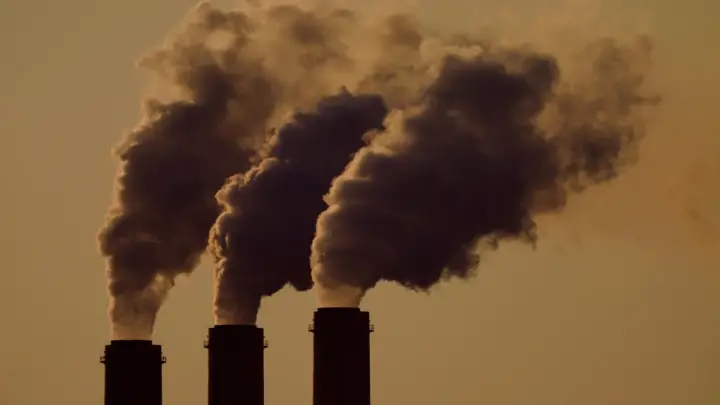Nestle, Unilever, the Mahindra Group, and Volvo Cars, among a coalition of 131 corporations with a collective global annual revenue nearing $1 trillion, have united in a call to action directed at political leaders ahead of the upcoming United Nations climate summit. These corporate giants are urging a decisive commitment to phasing out fossil fuels, and their united voice resonates with a resounding call for global change.
This joint initiative seeks to establish a clear and comprehensive timeline for the gradual elimination of fossil fuels, addressing not only the needs of more affluent economies but also focusing on providing essential support to developing nations.
In a statement released on Monday, these companies outlined their proposal, emphasizing the critical importance of reaching an agreement at the COP28 summit. Their primary objective is for attendees to pledge the achievement of entirely decarbonized power systems in wealthier nations by 2035. This aggressive timeline sets a precedent for addressing climate change with the urgency it requires. Simultaneously, the companies stress the importance of supporting developing nations, both financially and technically, to enable their transition away from fossil fuels by no later than 2040.

The joint letter, coordinated by the non-profit We Mean Business Coalition, an organization dedicated to advocating for greater climate action on a global scale, underscores the pressing reality that businesses worldwide are feeling the consequences of climate change. Increasingly frequent and severe weather events are not only impacting corporate operations but also incurring substantial costs. In response, the 131 signatories of the letter, representing a diverse range of industries, include both multinational corporations and small to medium-sized enterprises. Notable names among these signatories include Bayer, Heineken, IKEA, and Iberdrola.
While it is commendable that companies are taking steps to set their timetables for reducing emissions, they are acutely aware that their individual efforts can only go so far. To truly curb planet-warming CO2 emissions, it is imperative for governments to act swiftly and decisively. The success of these businesses in reducing emissions and transitioning towards cleaner energy sources is contingent upon the support and alignment of government policies and global commitments.
The COP28 summit is scheduled to begin in Dubai on November 30, set against a backdrop of increasingly dire warnings from the scientific community. These warnings make it clear that the world is not currently on track to avert the most severe consequences of climate change, as outlined in the 2015 Paris Agreement. This landmark agreement established the goal of limiting global temperature increases to 1.5 degrees Celsius (34.7°F) above pre-industrial levels.
One of the most contentious issues at the forefront of the climate debate is the pace at which nations should transition away from fossil fuels. Europe and other regions are calling for an immediate halt to the use of CO2-emitting fuels, but these demands inevitably clash with the positions of the world’s largest fossil fuel producers and consumers. This schism reflects the complex geopolitical and economic interests tied to fossil fuels, highlighting the challenges that must be overcome to effect real change.
Furthermore, less affluent nations argue that they are unable to accelerate CO2 emission reductions without substantial financial assistance from wealthier countries. This financial support is seen as a critical component of enabling these nations to make the necessary transitions to cleaner and more sustainable energy sources. It underscores the need for developed nations to fulfill their commitments to aid and support those countries facing the greatest challenges in addressing climate change.
In summary, the joint letter from 131 major corporations, including Nestle, Unilever, the Mahindra Group, and Volvo Cars, carries a profound message to political leaders in the lead-up to COP28. These businesses are taking a collective stand, urging governments to establish a firm timeline for the gradual phase-out of fossil fuels. Their vision includes decarbonizing power systems in wealthier economies by 2035 and providing support to developing nations for their transition away from fossil fuels by 2040. This call for action underscores the urgency and gravity of the climate crisis, emphasizing the need for collaborative efforts between businesses, governments, and nations to address this global challenge effectively. The success of such efforts hinges on the ability of political leaders to navigate complex international interests and commitments, all while working towards a sustainable and decarbonized future for our planet.
Support InfoStride News' Credible Journalism: Only credible journalism can guarantee a fair, accountable and transparent society, including democracy and government. It involves a lot of efforts and money. We need your support. Click here to Donate
